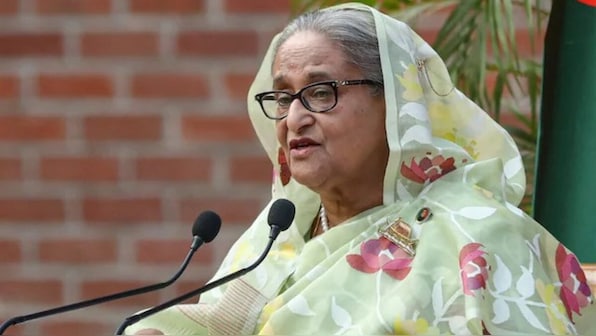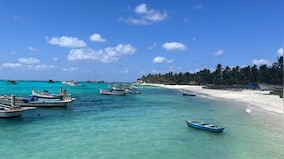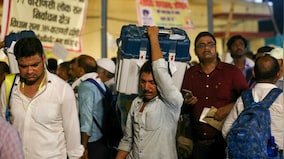Recently, Prime Minister of Bangladesh Sheikh Hasina made a revealing statement about international interests that want to carve out a “Christian country” from parts of Bangladesh and Myanmar. She said that a “white man” who met her before the Bangladesh elections in January this year had assured her of facing “no problems” during the elections if she allowed them to build an airbase on Bangladesh’s territory. Sheikh Hasina also compared it to East Timor and said that “they will carve out a Christian country, taking parts of Bangladesh and Myanmar with a base in the Bay of Bengal”.
Considering that the US, supported by other Western countries, was widely accused of attempting to influence the 2024 elections in Bangladesh, it is quite clear that PM Hasina was pointing towards the US. Many Western countries, led by the US, demanded “fair and free” elections, suggesting that Bangladesh’s democratic processes were not robust enough. Australia, Canada, Norway, the UK, the Republic of Korea, Japan, and the US issued a joint statement in which they expressed “concern” over spurts of violence before the elections.
The US Treasury Department went so far as to impose sanctions on Bangladesh’s elite paramilitary force, the Rapid Action Battalion (RAB), as well as seven of its current and former officers, due to alleged human rights violations. Furthermore, the US imposed visa restrictions on Bangladeshi leaders and officials whom they deemed as persons “undermining the democratic election process in Bangladesh”.
But that is not the only reason that PM Hasina’s revelation is being given due importance in not just Bangladesh and Myanmar, the two countries that she has mentioned, but also in India, a country that she alluded to. India has had its own set of problems recently on its northeastern borders. The Manipur conflict that started as ethnic violence between two communities is taking on a shape that would fit into Sheikh Hasina’s narrative.
The conflict exacerbated by the civil war-like situation in Myanmar has over the last year seen the idea of Zalengam, or the “land of freedom” in the Thadou-Kuki dialect, slowly creep into the narrative of some anti-India groups. The exact territorial claim, though not refined, has ambitions to include in India parts of Manipur, Mizoram, Nagaland, and the Karbi Anglong District of Assam; in Myanmar, parts of Sagaing Division and Chin State; and in Bangladesh, the Chittagong Hill Tracts. Today, Zalengam is being perceived as an ideologically based territory that would be inhabited by the predominantly Christian Kuki-Chin-Zo clans that have trans-border ethnic relations across India, Myanmar, and Bangladesh.
The umbrella term of Kuki- Chin, similarly to the term Nagas, encompasses many closely allied clans. Though John Ware Edgar, colonial administrator and political officer with the Lushai Expedition in 1872 who became Commissioner of Chittagong in 1885, noted that though the Kukis were similar but constantly at war with each other. John Shakespear, an intelligence officer for the Lushai Expeditionary Force in 1888 and later Deputy Commissioner, Assam, noted that the term Kuki was loosely applied to most of the inhabitants beyond the Chittagong Hill Tracts.
Though a demand for ‘Kukiland’ goes back to 1960, wherein the Kuki National Assembly had asked the then Prime Minister of India Jawaharlal Nehru to create a Kuki state, it was in the 1980’s when the insurgent group Kuki National Organisation took up the cause. It envisioned carving its territory from parts of Manipur, Nagaland, and Assam, making other communities like the Meiteis and the Nagas uneasy. However, today, Kukiland is seen as part of the more ambitious idea of Zalengam, which will bring together the Kuki Chin communities across borders through a common territory.
In Bangladesh, the Kuki-Chin National Front (KNF) is a banned ethno-nationalist militant group based in the Chittagong Hill Tracts with an armed wing called the Kuki-Chin National Army (KNA). Bangladesh authorities claim that they receive support from rebel groups in Myanmar. The group also wants a Kuki-Chin state in the Chittagong Hill Tracts. Since 2022, Bangladesh authorities have ramped up their action against the militant group, resulting in many Kukis seeking shelter in Mizoram, India. This was also a consequence of the increase in the frequency of attacks by the KNF on civilians. The Bangladeshi government has recently suspended peace talks with the KNF.
In Myanmar, where the same clans are called Chins, they have been at the centre of the conflict against the ruling Junta. The Chin National Army (CNA), which operates from the Chin State and Sagaing Divisions of Myanmar, captured key military outposts and towns on the border with India. Khampat town on the Kale-Tamu road, an important trade route, and Khampat police station in the Sagaing region were the first to fall. The Indian border town of Rikhawdar in Falam township was also seized, it is the first town in Chin state that is fully under the control of the Chin National Force (CNF). In an ominous declaration of rebel victory, the Chin National Army flag flew high over the border crossing. Additionally, PDF Zoland, a smaller group but with an ambitious name, took over the junta hilltop base on Kennedy Peak in the Tedim township. Zo, or Zou, is the northern Kuki-Chin-Mizo language spoken amongst tribes in Myanmar and India.
The situation is reminiscent of the now partially exhausted Naga insurgency that dreamt, once upon a time, of “Greater Nagalim for Christ”. The Naga umbrella identity was founded upon bringing together over 16 main tribal groups with their own distinct names and languages, with a sense of unity that was forged with the advent of the British administration and Christianity. The idea of Nagalim, similar to the idea of Zalengam, pursued the idea of bringing tribes under an umbrella identity across the northeastern region and in Myanmar.
Besides countering the dream of a “Land of Freedom”, the US’ involvement in the internal affairs of India’s neighbours, whether it is Myanmar or Bangladesh, will have a spillover effect. India is not new to the geopolitical games played by the US from time to time. The US-CIA involvement in the Naga insurgency is well recorded. A paper published by the Indian Council of Social Sciences Research claimed that a former secret service agent revealed that the Central Intelligence Agency (CIA) had supported and financed the Naga underground movement until the 1950s. The USA continued to be the patron and supplier of arms and ammunition to the insurgent groups of northeast India from Bangkok in the 1970s.
Therefore, when Sheikh Hasina makes a statement, it rings alarm bells. And when Awami League’s finance and planning affairs sub-committee member Squadron Leader (retd) Sadrul Ahmed Khan makes remarks to a global news agency like Sputnik India on the manipulations of Kuki-Chin rebels, it reinforces suspicions. Khan has said, “The Kuki-Chin rebels in Myanmar are majority Christian; they appear relatively prone to manipulations by foreign actors." He also pointed out that America’s tacit backing of Kuki-Chin rebels has security implications for not only Bangladesh and Myanmar but also India, which also has a large population of the ethnic group in the northeastern states, such as Manipur.
The alleged Christian state is a jigsaw puzzle where the pieces fit together to form the entire picture when a clear assessment is attempted based upon transnational ethnic ties. These age-old ties are further manoeuvred to benefit militant groups and Western interests, leaving innocent civilians from within these communities to bear the backlash. India must act stealthily to identify anti-national groups pushing ideas of freedom and international agencies that support them. Conversely, India must identify the leaders and groups from the Kuki-Chin communities that can counter such separatist claims; they must be brought to the forefront. It is only through building bridges, filling trust deficits, and outmanoeuvring vested interests that India can safeguard its interests.
Rami Niranjan Desai is an anthropologist and a scholar of the northeast region of India. She is a columnist and author and presently Distinguished Fellow at India Foundation, New Delhi. Views expressed in the above piece are personal and solely those of the author. They do not necessarily reflect the views of Firstpost.











)
)
)
)